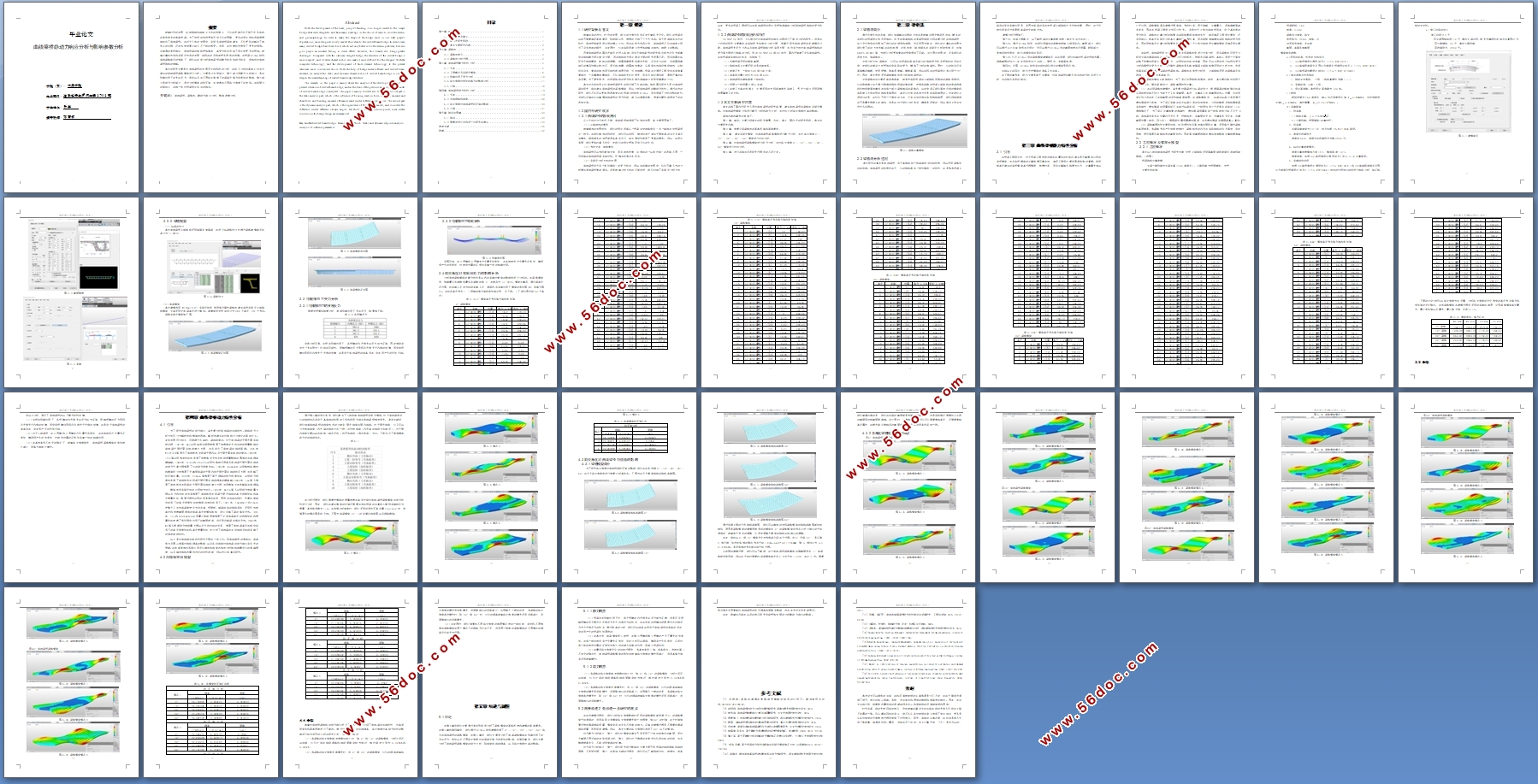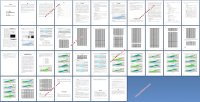曲线梁桥静动力响应分析与影响参数分析(任务书,开题报告,外文翻译,论文11300字)
摘要
随着时代的发展,在跨越地形地貌上方式的选择上,人们的思路已经不限于许多年前的直来直去的简单桥梁。为了使桥的形状更加符合人们的预期,更多的设计师将思路慢慢地移向了曲线梁桥。在近十几年的发展中,有很多曲线桥梁被建立,不仅更好的解决了地形上的问题,还在视觉效果上给人不一般的感受。但是,这份美好也带来了更大的挑战。与普通的直桥相比,曲线桥梁的结构更加复杂,其受力特点也给了设计师更大的困难。随着计算机技术和有限元技术的发展,给现在的后来者更多便利的选择。在桥梁midas软件、曲线梁格助手的帮助下,我们以此来分析曲线梁桥的静力特点和动力特点,来加深对曲线梁桥结构的理解。
本文的研究主要是对曲线梁桥的发展历史和现状的分析,在前人分析的基础上对自己建立的曲线梁桥梁格模型进行分析。主要是分为两部分,第一部分是静力分析部分,是在恒载作用下的支座反力、弯矩以及在不同斜交角度下的梁单元剪力和弯矩的影响;第二部分是动力分析部分,是对分析模型的特征值,并考虑在不同斜交角度下的差别。在前面分的基础上,总结一些对桥梁设计有益的结论。
关键词: 曲线梁桥;梁格法;静动力响应分析;影响参数分析;
Abstract
With the development of the times, people's thinking is no longer limited to the simple bridge that went straight to and from many years ago in the choice of ways to cross the terrain and geomorphology. In order to make the shape of the bridge more in line with people's expectations, more designers slowly moved their ideas to the curved beam bridge. In recent years, many curved bridges have been built, which not only better solve the terrain problems, but also give people an unusual feeling in visual effects. However, this beauty also brings greater challenges. Compared with the ordinary straight bridge, the structure of the curved bridge is more complex, and its stress characteristics also make it more difficult for the designer. With the computer technology, And the development of finite element technology, to the present latecomer more convenient choice. With the help of bridge midas software and curved beam assistant, we analyze the static and dynamic characteristics of curved beam bridge in order to deepen the understanding of curved beam bridge structure.
The research in this paper is mainly about the analysis of the development history and present situation of curved beam bridge, and on the basis of the previous analysis, the grid model of curved beam bridge is analyzed. This paper is mainly divided into two parts. The first part is the static analysis part, which is the influence of bearing reaction force, bending moment and shear force and bending moment of beam element under different skew angles. The second part is the dynamic analysis part, which is the eigenvalue of the analysis model, and considers the difference under different oblique angles. On the basis of the previous points, some useful conclusions for bridge design are summarized.
Key words:Curved beam bridge;Beam lattice method;Static and dynamic response analysis;Analysis of influence parameters.


目录
第一章 绪论 1
1.1研究背景及意义 1
1.2国内外研究现状 1
1.3本文主要研究内容 2
第二章 梁格法 3
2.1梁格法简介 3
2.2梁格法分析过程 3
第三章 曲线梁桥静力特性分析 5
3.1 引言 5
3.2 工程概况及有限元模型 6
3.3 恒载作用下受力分析 10
3.4斜交角度对弯矩和剪力的影响分析 11
3.5小结 18
第四章 曲线梁桥动力特性分析 19
4.1 引言 19
4.2自振频率和振型 20
4.3斜交角度对曲线梁桥特征值的影响 22
4.4小结 31
第五章 结论与展望 33
5.1结论 33
5.2需要改进之处和进一步研究的建议 33
参考文献 35
致谢 37
|





